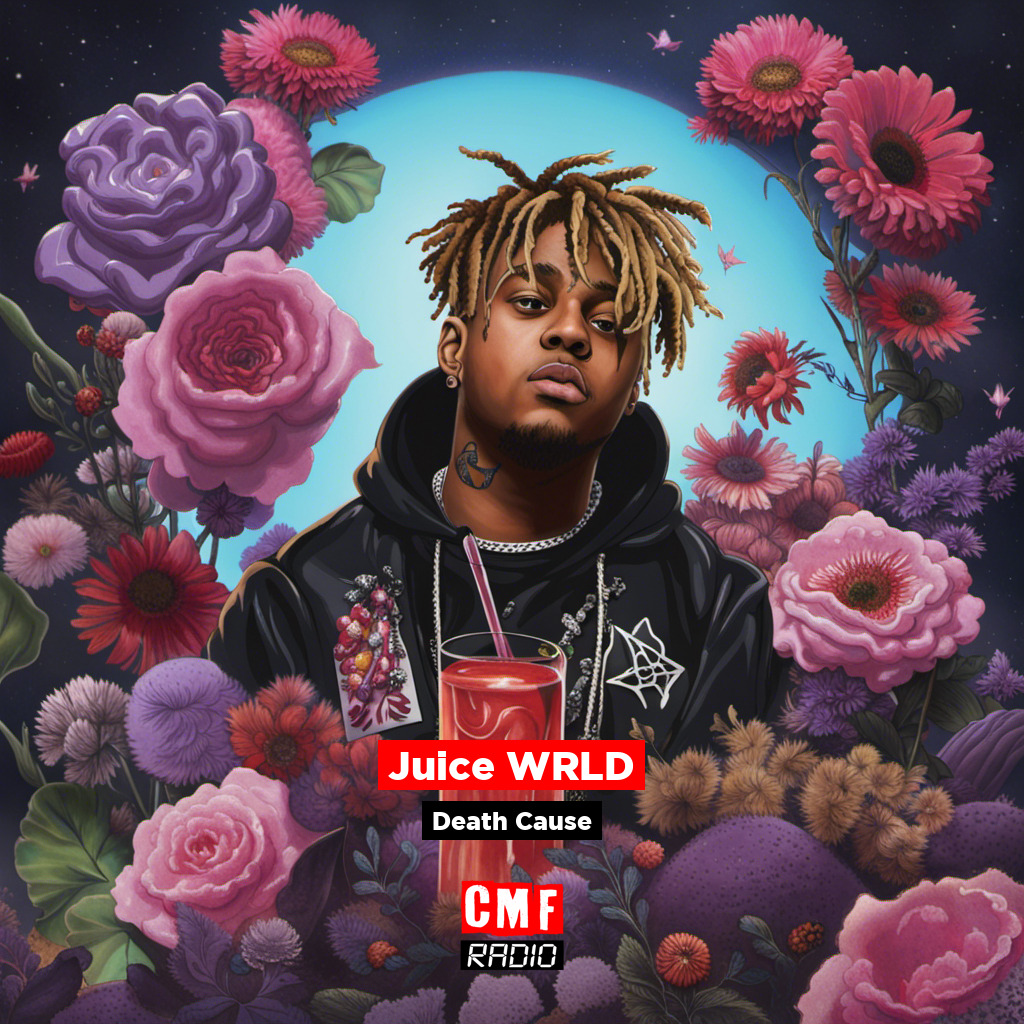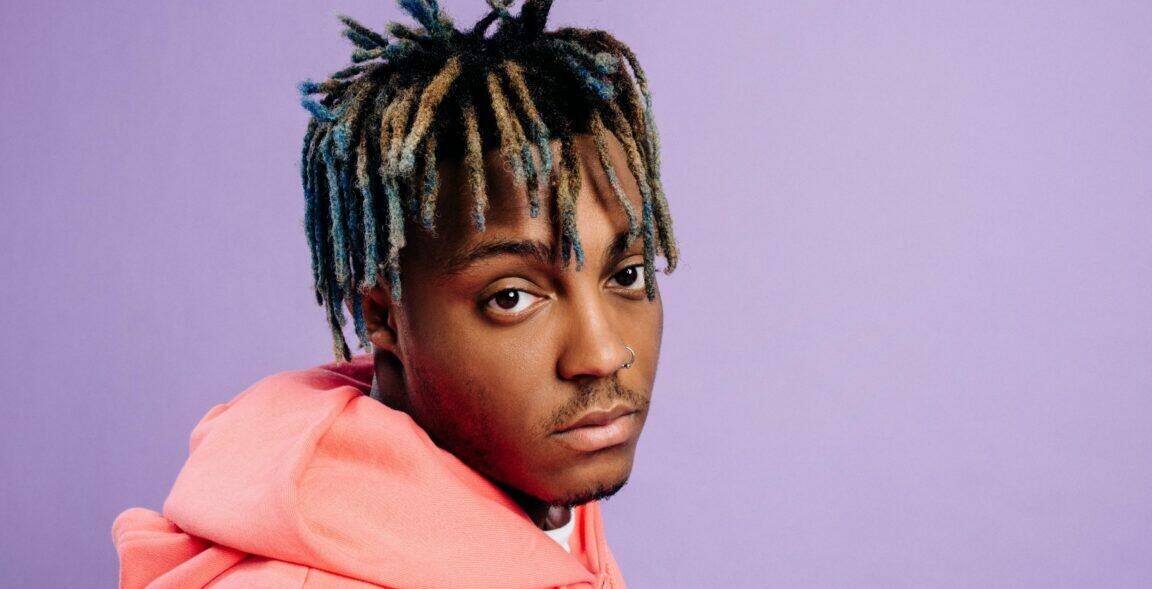When did Juice Wrld die? This question has been echoing through the music world ever since the tragic loss of one of the most promising young talents in hip-hop. The passing of Juice Wrld, whose real name was Jarad Anthony Higgins, left fans and fellow musicians heartbroken. In this article, we’ll dive deep into the timeline of events surrounding his death, exploring the impact he left on the music industry and the lives of his fans. But first, let’s set the stage—this ain’t just about dates and facts; it’s about understanding the legacy of a man who changed the game.
Imagine a world where music isn’t just beats and lyrics but a reflection of raw emotion. That was Juice Wrld’s world. His music wasn’t just background noise; it was a diary, a confessional booth, and a lifeline for millions who found solace in his words. But behind the melodies and the rhymes was a story that ended far too soon. When did Juice Wrld die? That’s the question we’re here to answer, but more importantly, we’re here to honor his memory.
This isn’t just another article about a celebrity’s passing. It’s about understanding the man behind the music, the struggles he faced, and the lessons we can learn from his journey. Whether you’re a long-time fan or just discovering his work, this article will give you a deeper look into the life and legacy of Juice Wrld. So, buckle up—it’s gonna be an emotional ride.
Read also:Shannon Sharpe Kids The Legacy Continues Through The Next Generation
Table of Contents
- Biography of Juice Wrld
- The Timeline: When Did Juice Wrld Die?
- Cause of Death
- His Musical Legacy
- Impact on Fans and the Music Industry
- Mental Health Awareness
- Facts About Juice Wrld You May Not Know
- Tributes and Memorials
- What’s Next for His Music?
- Conclusion
Biography of Juice Wrld
Before we dive into the specifics of when Juice Wrld died, let’s take a moment to understand the man behind the music. Born on December 2, 1998, in Chicago, Illinois, Jarad Anthony Higgins grew up in the south suburbs of the city. His childhood was marked by the same struggles many young people face—finding identity, dealing with peer pressure, and navigating the complexities of growing up in a tough environment. But Jarad, or Juice Wrld as he came to be known, had a gift. He had a voice, and he wasn’t afraid to use it.
Early Life and Influences
From a young age, Jarad was surrounded by music. His father, who played in a band, introduced him to a wide range of genres, from rock to hip-hop. This exposure helped shape his unique sound, which blended elements of emo, rap, and pop. But it wasn’t just about the music. Jarad was also deeply influenced by the world around him. The struggles of his community, the pain of heartbreak, and the search for identity all found their way into his lyrics.
Here’s a quick look at some key points from his early life:
- Born in Chicago, Illinois, on December 2, 1998.
- Grew up in the south suburbs of Chicago.
- Introduced to music by his father, who played in a band.
- Started rapping at a young age, drawing inspiration from artists like Eminem and Lil Wayne.
Professional Career
Juice Wrld’s career skyrocketed after the release of his mixtape "Demons" in 2015. The mixtape featured tracks like "Lucid Dreams," which would later become a massive hit. His unique sound, combining emotional lyrics with catchy beats, resonated with a generation of listeners who were searching for authenticity in music. By 2018, Juice Wrld was a household name, with hits like "All Girls Are the Same" and "Robbery" dominating the charts.
The Timeline: When Did Juice Wrld Die?
Now, let’s get to the heart of the matter. When did Juice Wrld die? The tragic news broke on December 8, 2019, when the world learned that Juice Wrld had passed away at the age of 21. The news sent shockwaves through the music industry and beyond, leaving fans and fellow artists reeling. But what exactly happened that day?
According to reports, Juice Wrld was traveling on a private jet that landed at Midway Airport in Chicago. As he was being transported from the airport, he suffered a medical emergency. Emergency services were called, but despite their best efforts, Juice Wrld was pronounced dead at the hospital. The exact time of his passing was reported to be around 3:00 a.m. CST on December 8, 2019.
Read also:Erin Perrine Age Unveiling The Story Behind The Inspiring Journalist
Cause of Death
The cause of Juice Wrld’s death was officially ruled as a drug overdose. An autopsy revealed that he had a combination of cocaine and opioids in his system at the time of his passing. This tragic outcome was a stark reminder of the dangers of substance abuse and the importance of mental health awareness. Many have since speculated about the pressures of fame and the challenges Juice Wrld faced in his personal life, but one thing is clear—his untimely death was a wake-up call for the music industry and beyond.
His Musical Legacy
Despite his short career, Juice Wrld left an indelible mark on the music industry. His unique blend of emo rap and pop-infused beats created a new genre that resonated with millions of listeners. Songs like "Lucid Dreams," "Robbery," and "All Girls Are the Same" became anthems for a generation, and his influence continues to be felt in the music world today.
But it wasn’t just about the music. Juice Wrld was also known for his activism and his efforts to raise awareness about mental health issues. He used his platform to speak out about the struggles he faced and encouraged others to seek help when they needed it. In many ways, his legacy extends far beyond the charts and into the lives of those he touched with his words.
Impact on Fans and the Music Industry
The loss of Juice Wrld was felt deeply by his fans and fellow musicians alike. Tributes poured in from all corners of the music world, with artists like Travis Scott, Kanye West, and Post Malone expressing their condolences. Fans, too, took to social media to share their memories and express their grief. The outpouring of support was a testament to the impact Juice Wrld had on the world.
But the impact of his passing wasn’t just emotional. It also sparked important conversations about mental health, substance abuse, and the pressures of fame. Many have since called for greater support systems for artists and a more open dialogue about these issues. Juice Wrld’s death was a tragedy, but it also became an opportunity for change.
Mental Health Awareness
One of the most important aspects of Juice Wrld’s legacy is his commitment to mental health awareness. Throughout his career, he spoke openly about his struggles with depression, anxiety, and substance abuse. He used his music as a way to connect with others who were facing similar challenges and encouraged them to seek help.
After his passing, many organizations and individuals have continued this work in his honor. Initiatives like the Juice Wrld Mental Health Fund aim to provide resources and support to those in need, ensuring that his message of hope and healing lives on.
Facts About Juice Wrld You May Not Know
While many know Juice Wrld for his music, there are a few facts about his life that might surprise you:
- He was an avid gamer and often streamed his gaming sessions on platforms like Twitch.
- He had a passion for cars and owned several luxury vehicles.
- He was known for his love of anime and often referenced it in his music.
- He was a philanthropist, donating to causes like the Boys & Girls Clubs of America.
Tributes and Memorials
In the wake of his passing, tributes and memorials were created to honor Juice Wrld’s memory. Fans organized vigils and memorials in cities across the world, while artists paid tribute through their music. Memorials were also set up online, with fans sharing their favorite lyrics and memories on social media.
One of the most touching tributes came from the city of Chicago, where Juice Wrld was born and raised. A mural was painted in his honor, capturing his spirit and legacy in vibrant colors. It’s a reminder that even though he’s gone, his impact will never be forgotten.
What’s Next for His Music?
Even after his passing, Juice Wrld’s music continues to inspire and influence new generations of listeners. Posthumous releases, like the album "Legends Never Die," have kept his legacy alive, introducing his music to new fans around the world. These releases not only celebrate his life and work but also ensure that his message of hope and healing continues to reach those who need it most.
Conclusion
When did Juice Wrld die? The answer is December 8, 2019, but the real question is, what did his life and music mean to the world? Juice Wrld was more than just a musician; he was a voice for a generation, a beacon of hope, and a reminder of the importance of mental health awareness. His legacy will continue to inspire and influence for years to come.
So, take a moment to reflect on his life and work. Share this article with someone who might not know his story. Leave a comment below sharing your favorite Juice Wrld memory. And most importantly, let’s continue the conversation about mental health and substance abuse, ensuring that his message of hope and healing lives on. Because legends never die, and neither will the memory of Juice Wrld.


